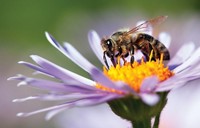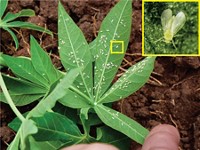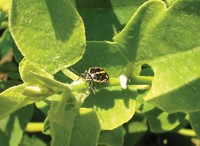Advertisement
Grab your lab coat. Let's get started
Welcome!
Welcome!
Create an account below to get 6 C&EN articles per month, receive newsletters and more - all free.
It seems this is your first time logging in online. Please enter the following information to continue.
As an ACS member you automatically get access to this site. All we need is few more details to create your reading experience.
Not you? Sign in with a different account.
Not you? Sign in with a different account.
ERROR 1
ERROR 1
ERROR 2
ERROR 2
ERROR 2
ERROR 2
ERROR 2
Password and Confirm password must match.
If you have an ACS member number, please enter it here so we can link this account to your membership. (optional)
ERROR 2
ACS values your privacy. By submitting your information, you are gaining access to C&EN and subscribing to our weekly newsletter. We use the information you provide to make your reading experience better, and we will never sell your data to third party members.
Natural Products
The chemistry behind marigolds’ pest-control power
The flowers produce limonene, which keeps the glasshouse whitefly away from tomato plants
by Bethany Halford
March 9, 2019
| A version of this story appeared in
Volume 97, Issue 10
Glasshouse whiteflies can decimate a tomato crop. The greenhouse pests transmit viruses and snack on the plants’ leaves, resulting in secretions that hinder photosynthesis. It’s lore among gardeners that planting marigolds alongside tomatoes protects the plants from glasshouse whiteflies, but until now, no one knew how the flowers worked their magic. In search of the answer, Niall J. A. Conboy and researchers at Newcastle University studied the volatile compounds given off by French marigolds. Among those is (+)-limonene, a terpene that the pests find repugnant (PLOS One 2019, DOI: 10.1371/journal.pone.0213071). The researchers placed air-freshener-like dispensers loaded with (+)-limonene among tomato plants and found that these deterred glasshouse whiteflies more effectively than marigolds. Inexpensive (+)-limonene is a major component of citrus peels, so it could be a green option for pest control. “Most pesticides are sprayed onto the crops,” Conboy explains. “This doesn’t only kill the pest that is targeted, it kills absolutely everything, including the natural enemies of the pest.” Next, the team plans to explore plants that deter two other tomato pests, spider mites and thrips.





Join the conversation
Contact the reporter
Submit a Letter to the Editor for publication
Engage with us on Twitter